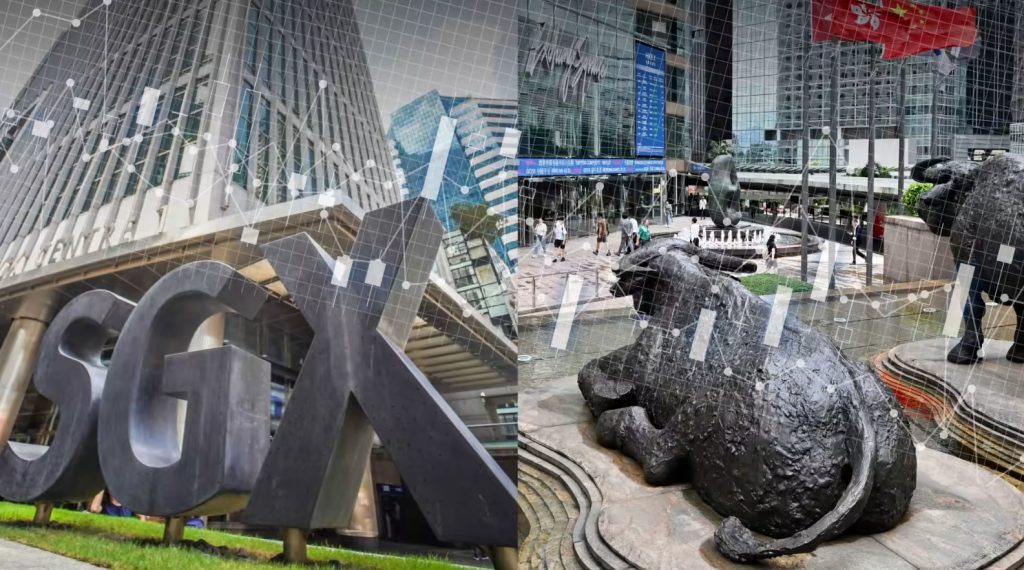
SINGAPORE — Singapore’s stock exchange is losing listings at a faster pace than it is adding them, dealing a blow to the city-state’s financial industry even as it solidifies its position as a regional center for managing the money of rich Asians.
Although Singapore’s political stability has made it a safe haven for financial assets, recent corporate governance failures and sluggish trading volumes — particularly in comparison with regional rival Hong Kong — have undercut its appeal for companies raising equity capital, analysts say.
There were only three initial public offerings on the Singapore Exchange (SGX) in the first half of the year, down from six in the same period of 2022, with the proceeds amounting to less than $100 million, according to a report by the professional services company EY.
By contrast, IPOs in Hong Kong rose to 29 during the first half of the year from 20 in the same period of 2022, and raised $2.3 billion. Within the 10-member Association of Southeast Asian Nations, there were 45 IPOs in Indonesia, 16 in Malaysia and 15 in Thailand — with total proceeds in each topping $500 million.
“Unfortunately, the Singapore market is just not attracting the same breadth and profile of global investors into its market,” Paul Go, EY’s global IPO leader, told Nikkei Asia. “There are many large-market-cap listed companies in Singapore which are majority owned by the country sovereign wealth funds, which makes it more difficult for the entrepreneurial SMEs (small and medium-size enterprises) to attract investors’ attention.”
Meanwhile, 10 companies were delisted in Singapore during the first half of the year, up from eight in same period of 2022, according to the financial market platform Dealogic. Overall, the number of listed companies in Singapore fell from 665 in May 2022 to 643 in May 2023.
Mak Yuen Teen, a professor of accounting at the National University of Singapore, said some of the companies gave up their listings because of frustrations over the lack of liquidity on the exchange, while others “have performed poorly or (are) embroiled in accounting or corporate governance scandals.”
“These have been forced to delist after they have been placed on watchlists … or suspended and then delisted,” Mak said. “Some have just packed up and run.”
Mak said he believes the grim look for IPOs in Singapore “is partly a consequence of poor decisions in the past, which has affected market confidence.” One example, he said, involved Ayondo, a financial technology company that listed in 2018. Trading in its shares was suspended the following year and it was delisted in 2021 after its chief executive and chief financial officer both left the company.
“SGX should learn its lesson and not just focus on number of listings but the quality of listings,” Mak said. “That will require significant effort to rebuild market confidence.”
For its part, the Singapore Exchange is not just relying on IPOs to drive business. It has said it will seek to diversify its revenue with a “multi-asset strategy” involving areas like fixed income, currencies and commodities; market data; index calculation; and connectivity services.
An SGX spokesperson also suggested to Nikkei Asia that Singapore could see an increase in IPO activity if global financial and political conditions change.
“The listings we’ve seen over the past year and to date have taken place against a backdrop of companies worldwide preferring to stay private, uncertainty around interest rates, and geopolitical tensions,” the person said. “Many positive and active conversations with potential IPO aspirants are ongoing. We anticipate some of these companies may list when market conditions are more favorable.”
Away from the exchange, Singapore has a far better track record of attracting family offices, which manage money for the wealthy. In a report last month, professional services company KPMG and consultancy Agreus said 59% of Asia’s family offices are located in Singapore, compared with just 14% in Hong Kong.
Singapore has emerged as hot spot for Chinese funds as the government in Beijing has taken aim at wealth disparity in Asia’s largest economy while tightening its grip on Hong Kong, undercutting the financial hub’s reputation as safe haven to park assets.
China saw a net outflow last year of 10,800 high net worth individuals — those with at least $1 million in assets — according to data compiled by the investment migration consultancy Henley & Partners. Hong Kong lost 3,000, while Singapore gained 2,800.
The number of family offices in Singapore has grown apace. Based on estimates from the Monetary Authority of Singapore, there were about 400 family offices in the city-state at the end of 2020 and 700 by the end of 2021. At the end of last year, 1,100 single-family offices, meaning they work for just one family, were awarded tax incentives in Singapore, the MAS said in an update last week.
EY’s Go said the political factors that are benefiting Singapore’s wealth management businesses could also help it attract IPOs. “Singapore presents a more politically stable environment that is less affected by geopolitics,” he said.
But even Singapore’s family offices have complaints about the opportunities in its stock market.
To qualify for tax breaks, they are required to park at least 10% of their assets under management or 10 million Singapore dollars ($7.4 million) — whichever is lower — in local investments like equities on the exchange. Finding good companies can be a struggle, they say.
“I have difficulties finding things to disburse within [the] SG$10 million [requirement],” an investment management specialist based in Singapore who deals with family offices told Nikkei Asia. In Singapore, “very limited stocks can provide good return or good yield.”